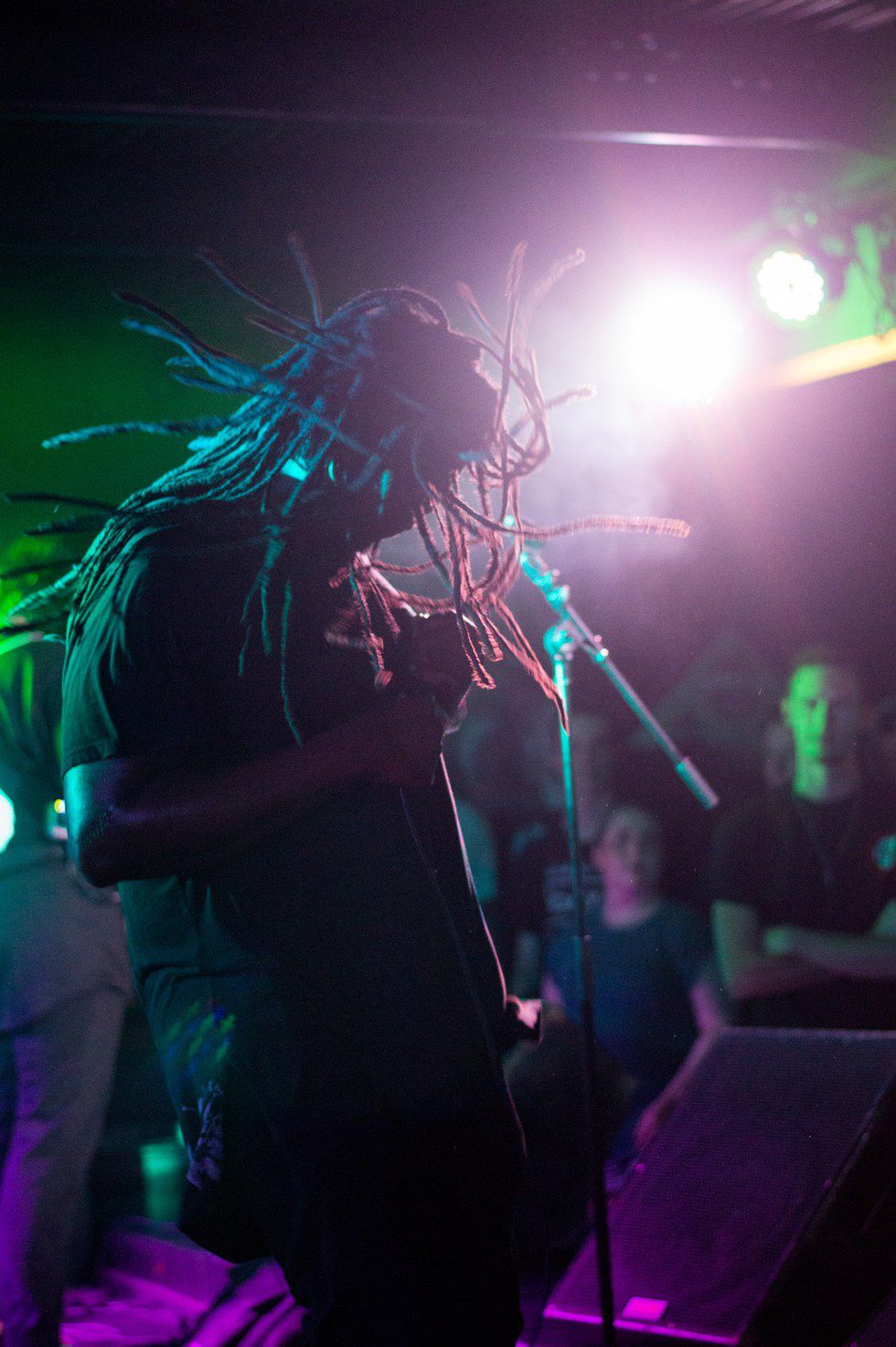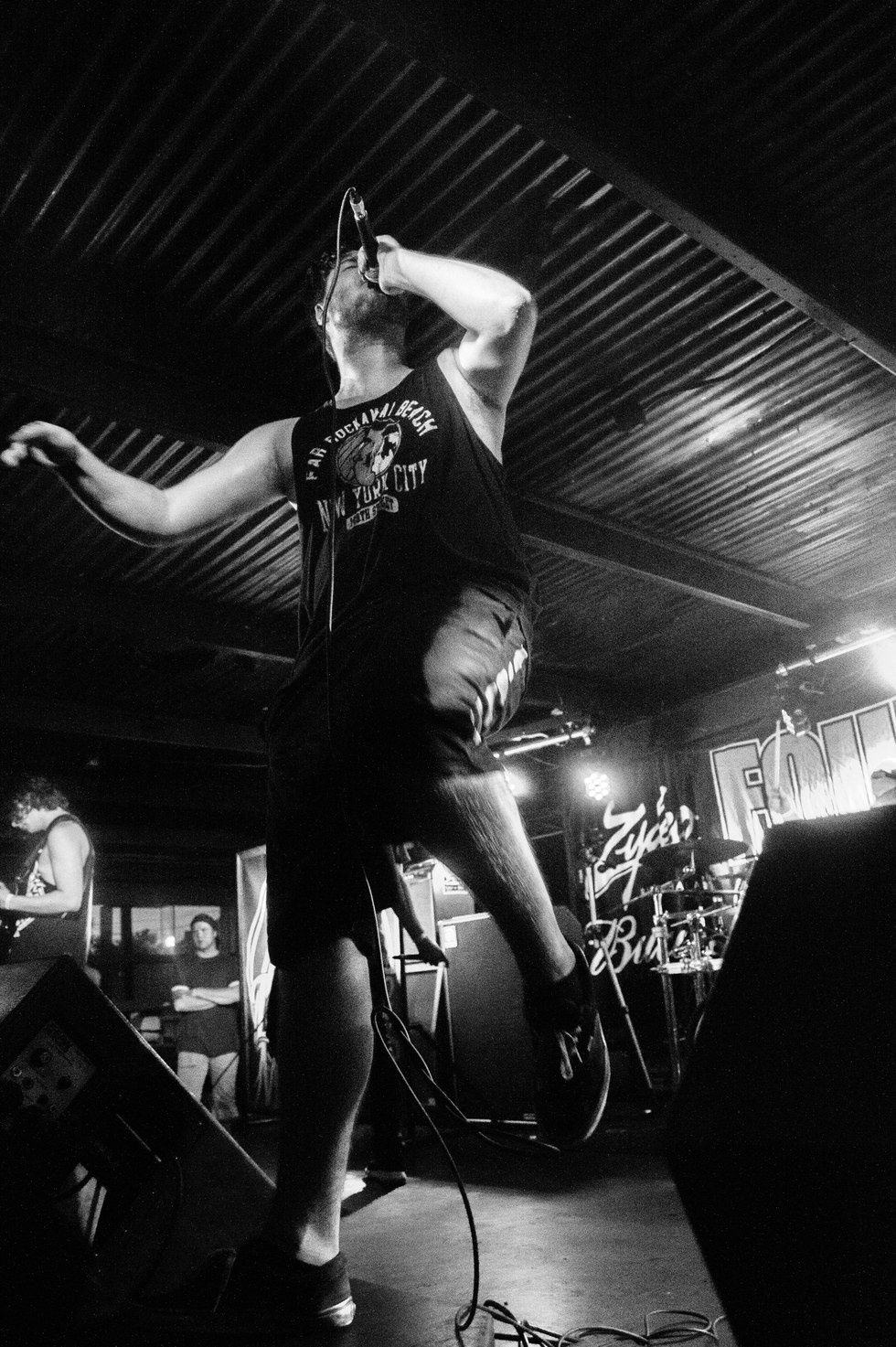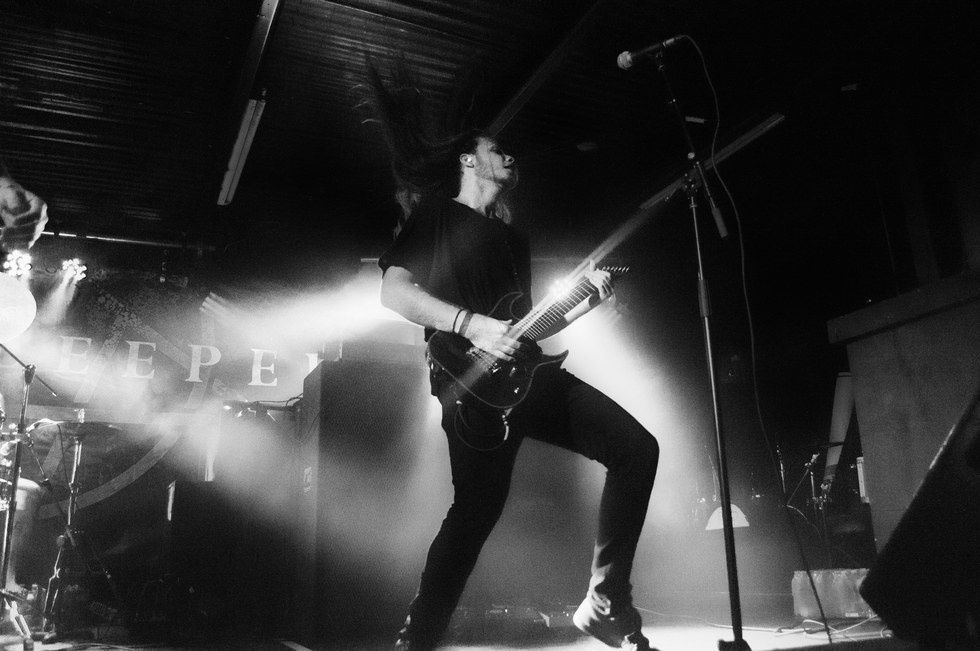So you're about to photograph your first concert? That's rad! I have been following local bands around taking pictures of their shows for a couple of years now. While I am no professional (yet), I do have a few batarangs in my utility belt (high-five to all you other nerds out there). Here are a few things I've learned in my experience photographing shows.
#1. Lighting
When you first start shooting concerts you're most likely going to be working local shows in smaller (and much sketchier) venues. Now, there's nothing wrong with this, but the lighting at these venues is generally less than ideal and can be a challenge even for more experienced photographers. The good thing about this horrible lighting, however, is that you quickly learn a lot about how your camera works and how the different settings affect one another. Your best bet in this situation is to set your ISO at 200 and your shutter speed somewhere between 1/60th and 1/100th of a second then bump up the ISO until the image is properly exposed. Keep in mind that the lower your shutter speed is the more motion blur your photos will have (which isn't necessarily a bad thing) and that the higher your ISO is the noisier your images will be. Another thing you'll need to do is set your aperture as wide (down to the smallest number) as you can. (e.g. 1.4, 2.8, 3.5, etc.) The wider your aperture is the more light is let into the lens.
#2. First Three, Flash Three...Or Nah?
This is the rule generally used in larger, more sophisticated venues (so, not that bar underneath the interstate). If you're shooting in a smaller venue and want to use your flash, just make sure you have permission from the whoever booked the show (they're the ones running around in charge of everything). Using the flash is great because it allows you to be a little less strict on your light settings. Be careful not to point the flash in anyone's face or (if you're using your camera's built-in flash) you can use a white business card (I've even used a paper towel before) to manipulate the light so that you don't make some poor kid see white spots for the rest of the night.
#3. Dodging Fists and Guitars
Sometimes you will be blessed with a photo pit, sometimes you won't. Either way, make sure to be aware of your surroundings. I've nearly been kicked in the head, hit by swinging guitars, and have actually fallen through chairs and off stage many times. (I'm kind of a klutz, it just makes my life more entertaining.) Staying aware of what's happening around you (and having the camera strap wrapped around your hand a good few times) can help keep everyone and their equipment safe.
#4. Don't Take Yourself Too Seriously
Photographing your first concert can be scary, and finding that maybe some of the pictures you took aren't usable can be discouraging. It happens to everyone, even the pros. Don't get too caught up in making every shot perfect. The job you're about to do is a difficult one, so accept it for the challenge that it is and just have fun with it!

























